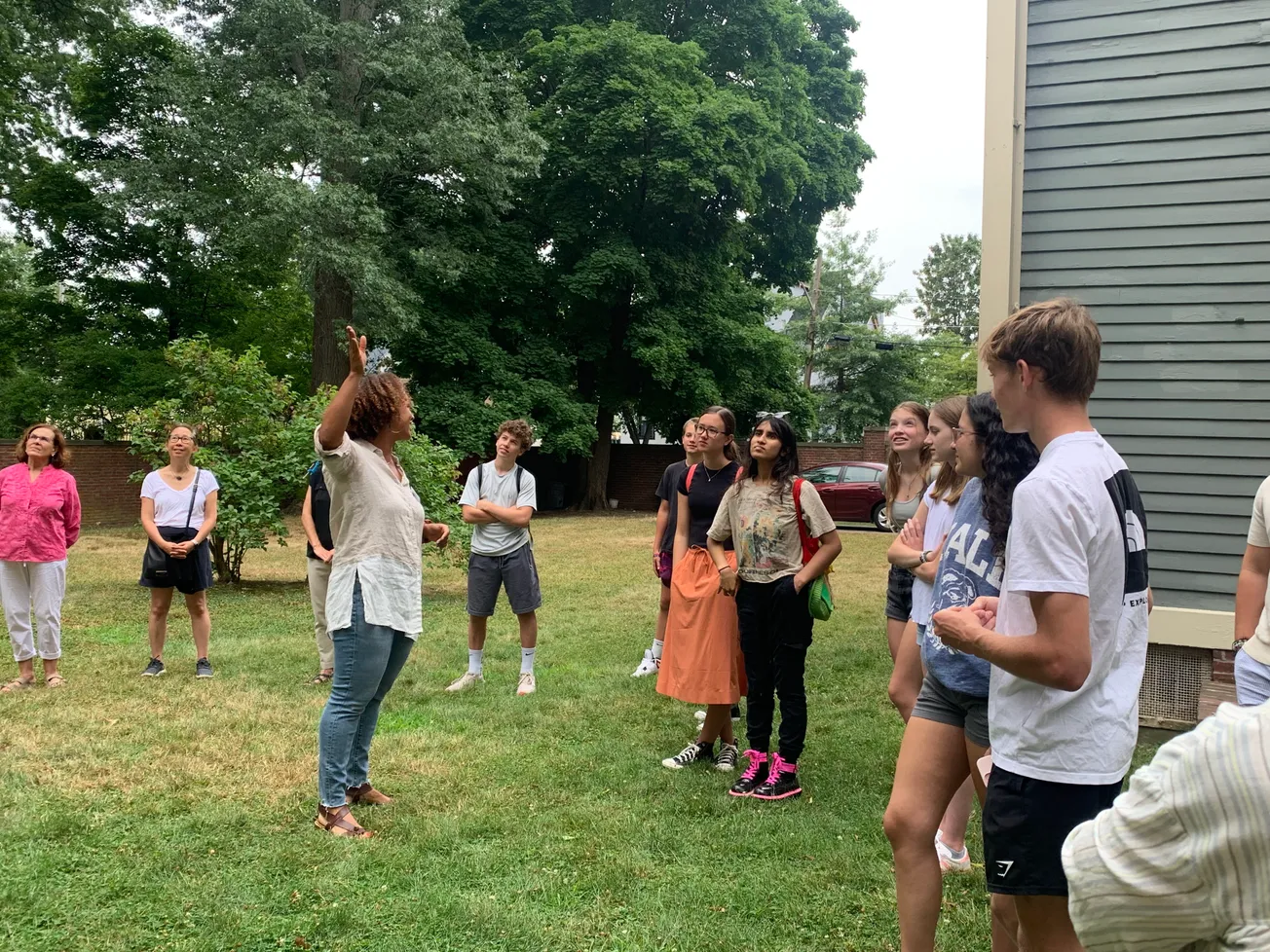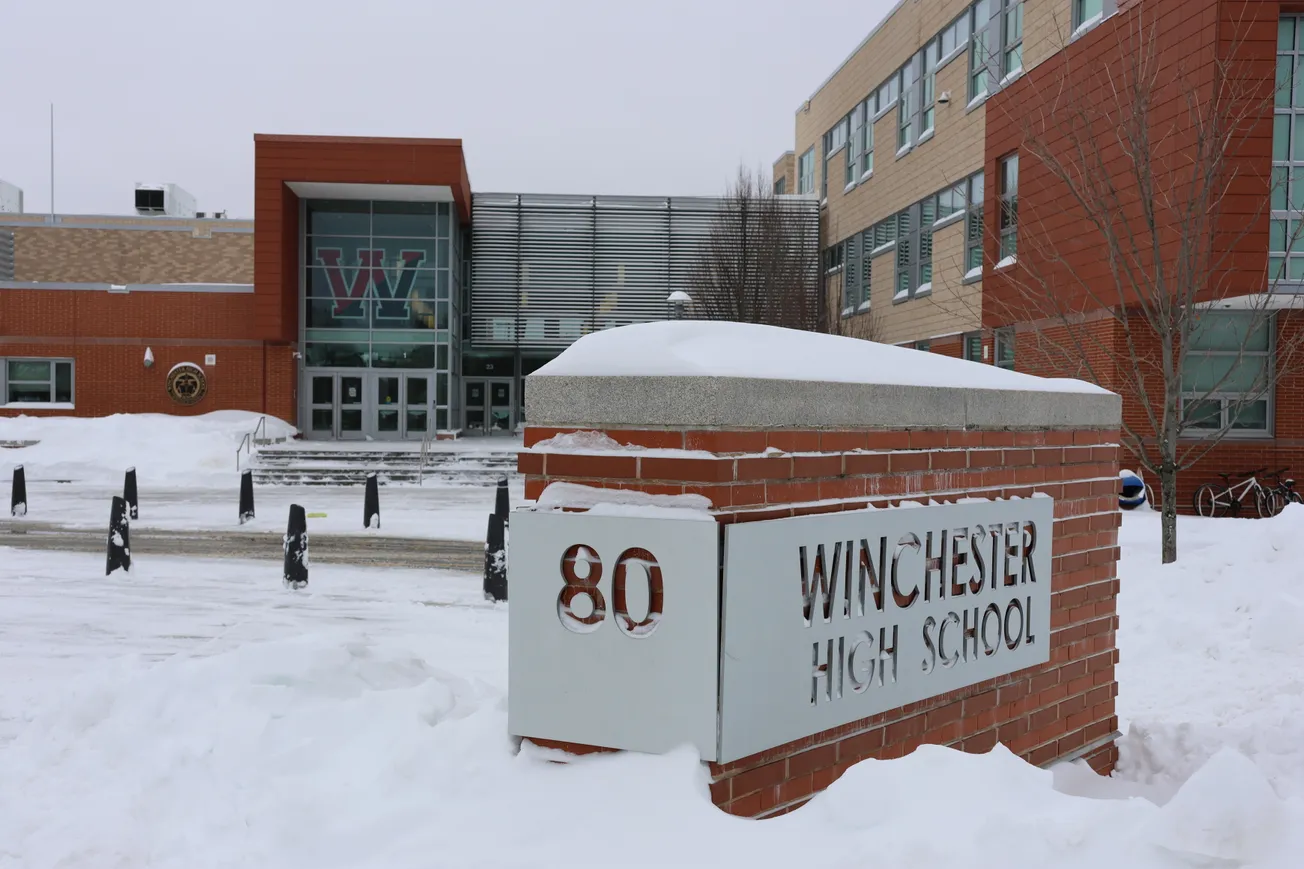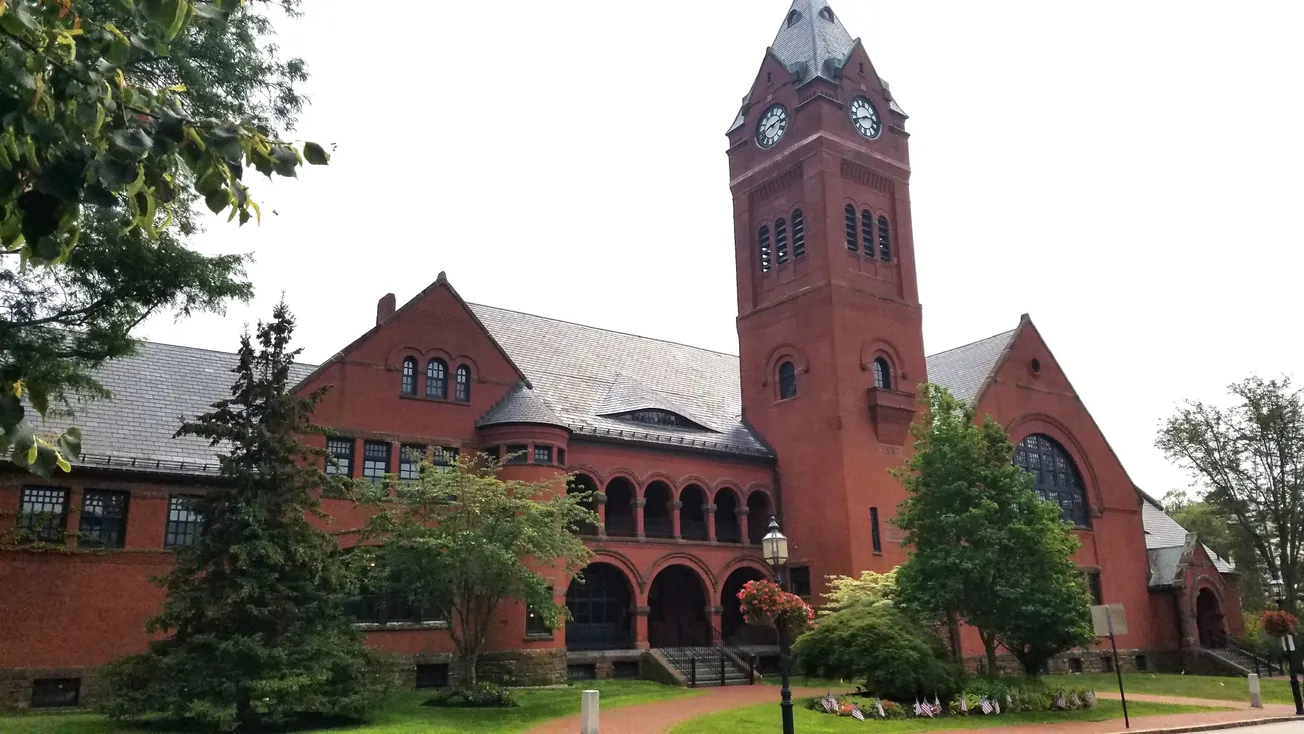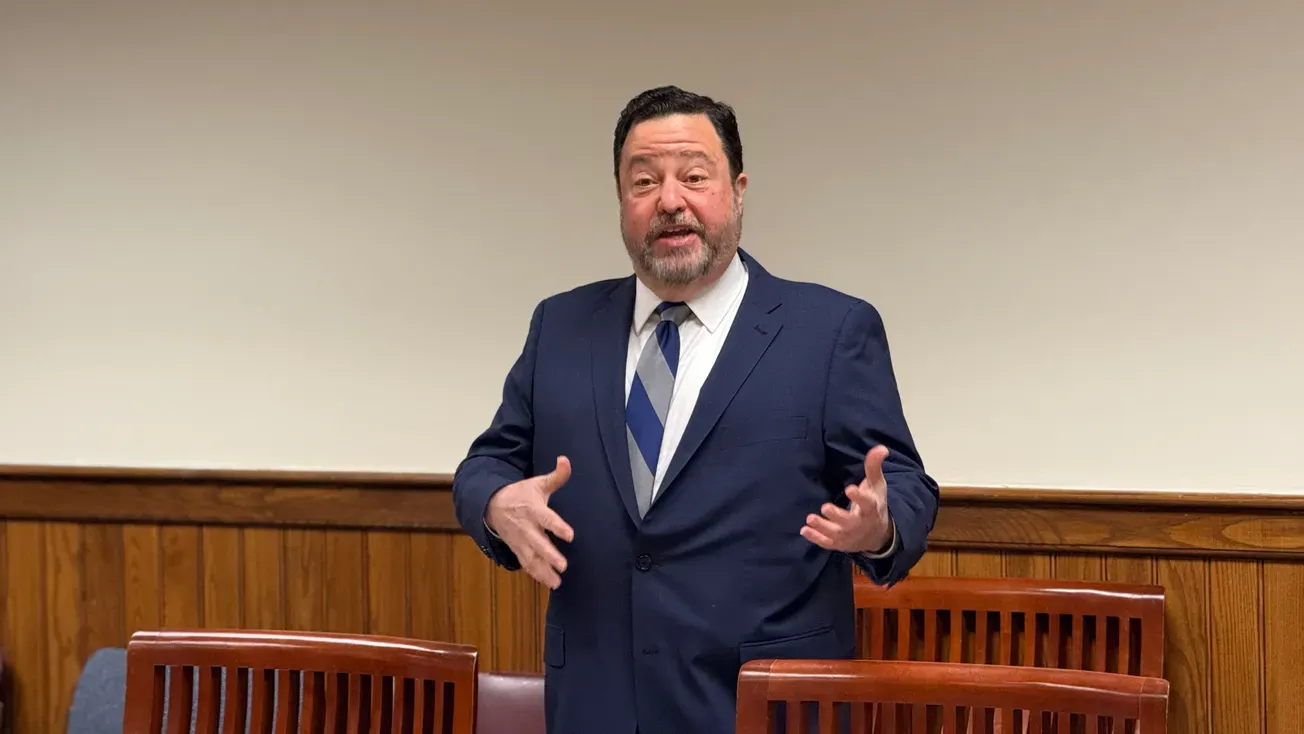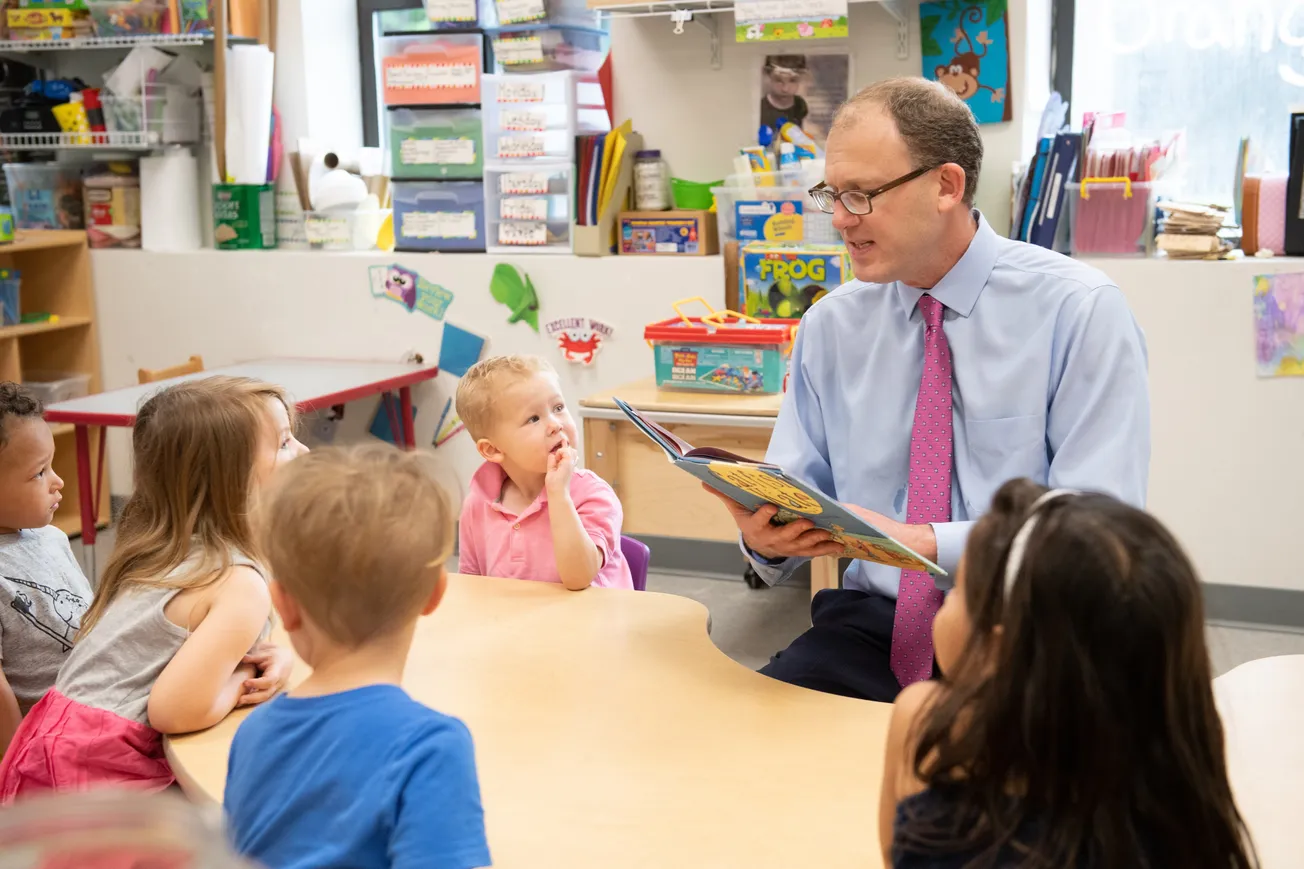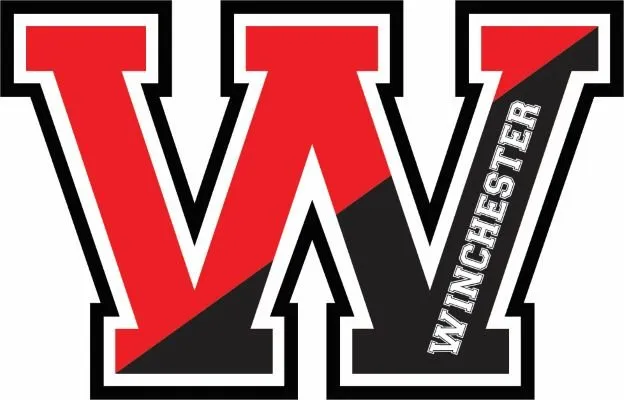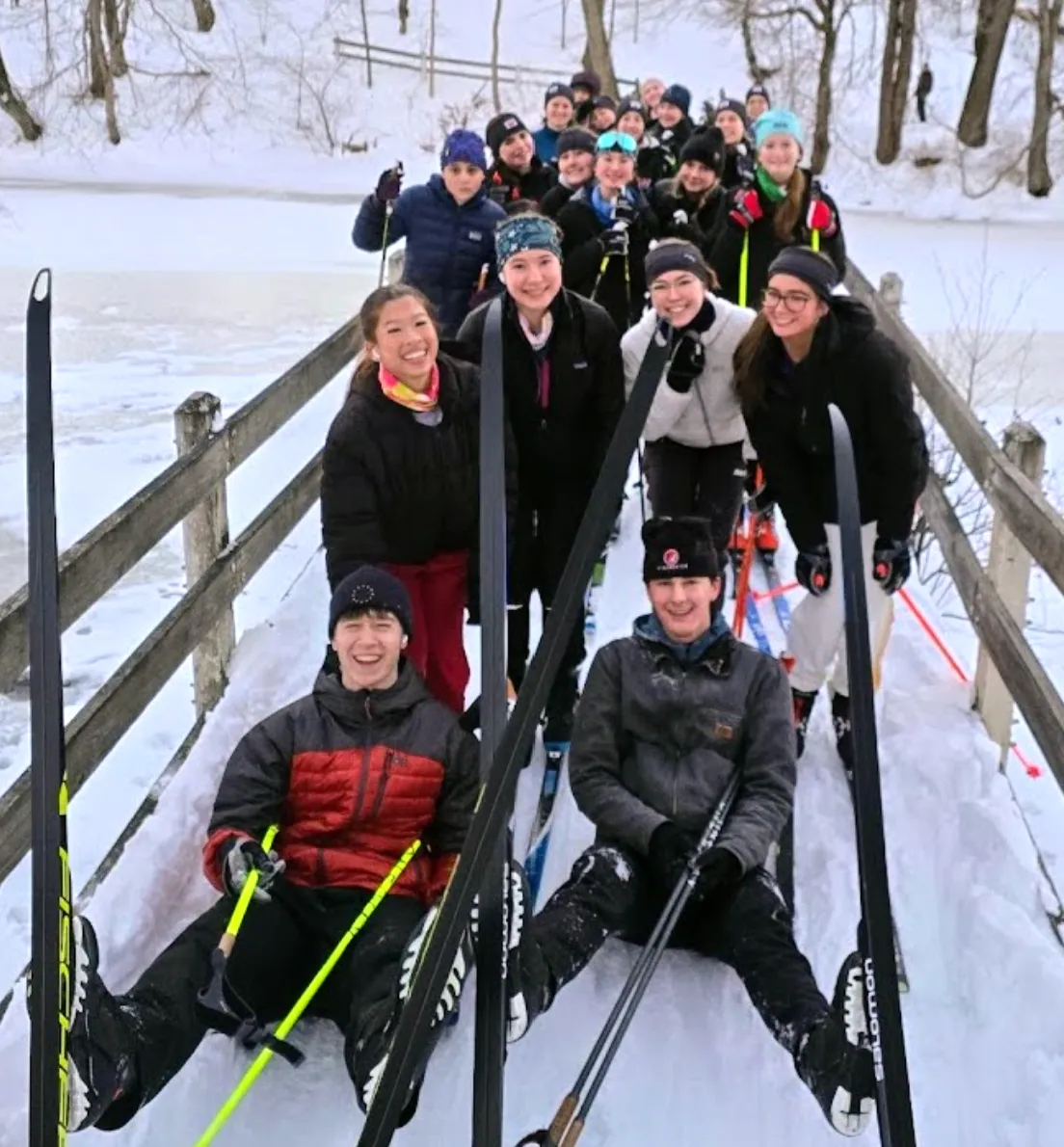Table of Contents
High school summers are filled with memories of hanging out with friends, playing football on the beach, fishing, and concerts, all blended with college preparation stress — looming more significant each moment.
The summer before your senior year is bittersweet. Responsibility grows more significant while childhood foolishness shrinks away into stolen moments. Our coaches and teachers stress the importance of being only as strong as our weakest members, teamwork, and awareness.
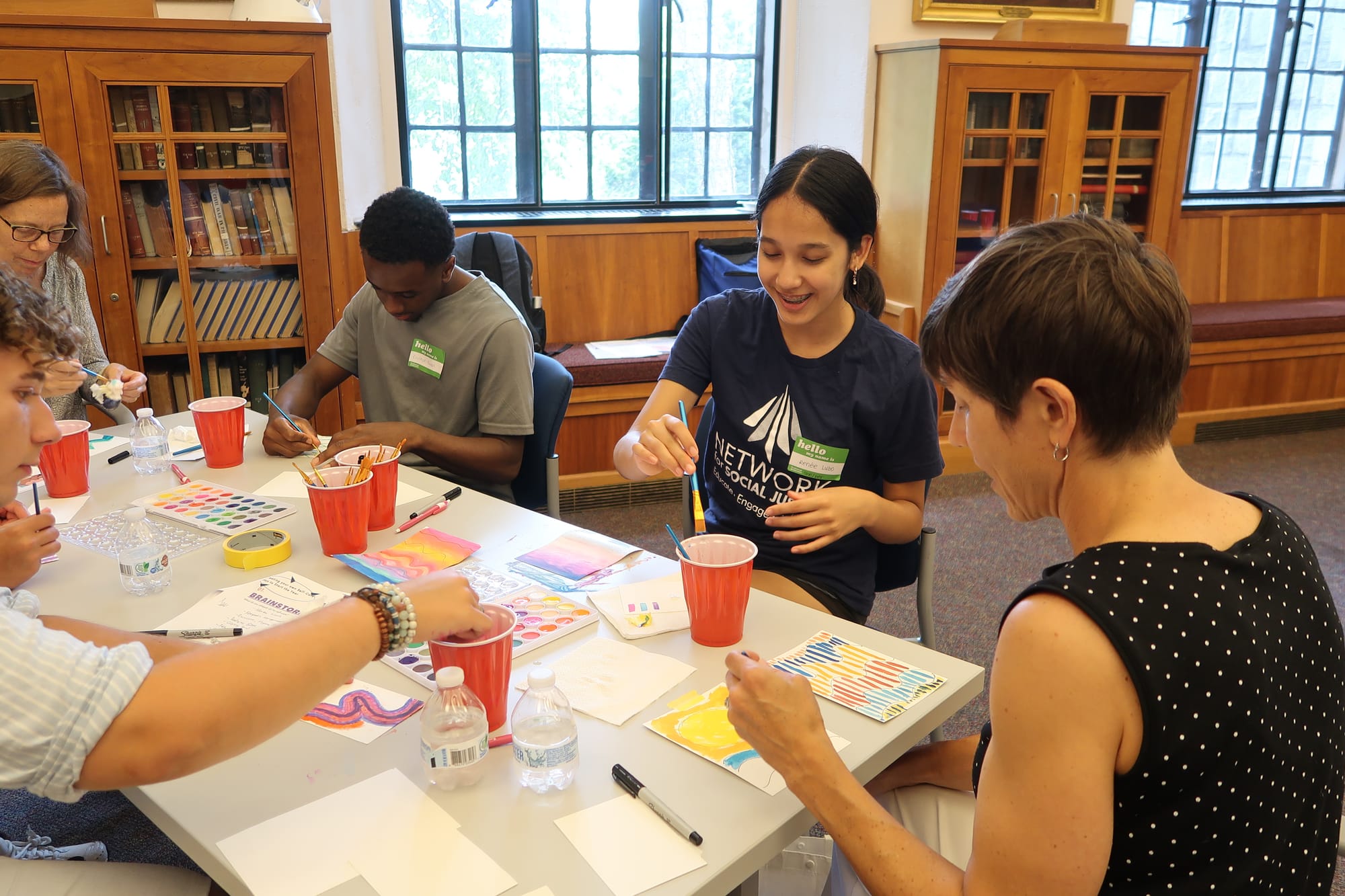
A vital skill of becoming an adult is learning to see different perspectives. This summer, I joined a few high school and taekwondo friends who were summer interns in a joint program of the Network for Social Justice (NFSJ), led by new Executive Director Rebecca Slisz, and Social Capital, Inc., based in Woburn. This workshop taught me to step outside my life and see the world from other perspectives.
At the Network of Social Justice, Ms. Slisz’s goal is to support young people in broadening their horizons as we prepare for the next steps in our education, ensure our mental health is balanced, and use our voice to help others. These were all messages we’d received in music and popular culture, but it wasn’t until the internship that we truly grasped these concepts.
Each week, we met with Ms. Slisz, talked, researched, and made observations about critical issues. We all look different, come from varied backgrounds, like a diverse range of music, and have the same struggles, precisely the same.
I was introduced to the concept of reparations and learned about an actual case study of a highly controversial topic. While I memorized the dates and events in history class, I never fully understood the lasting impact of slavery and the long-lasting imbalance of wealth between white families and families of color in America.
We learned about a group in Melrose working on Reparations, an initiative also supported by a committee of the Mystic Valley NAACP. We had to understand it, learn about it, and then spend time analyzing data from public websites about representation in schools and home loans.
This is especially helpful as we try to digest the upcoming election, prepare to be college-ready, and sort out the bias and popular threads that society, our parents, and our peers discuss. Data sets, interpretation methods (math teachers rejoice), and so much history, a different history than I learned.
For another project, we created a community survey to learn what people care about in terms of social justice.
We spent the summer visiting the libraries and farmer markets, making posters, and collecting more data from different towns to see where the trail leads us. While we engaged, time passed, and side conversations began between us.
Towards the end of the session, our team of 12 ate lunch together, laughing and engaging in civil debates regarding what we had studied. Growing up in such a polarized society, I never learned how to be friends with people I disagreed with. How can you enjoy lunch, laugh, and argue all at the same time?
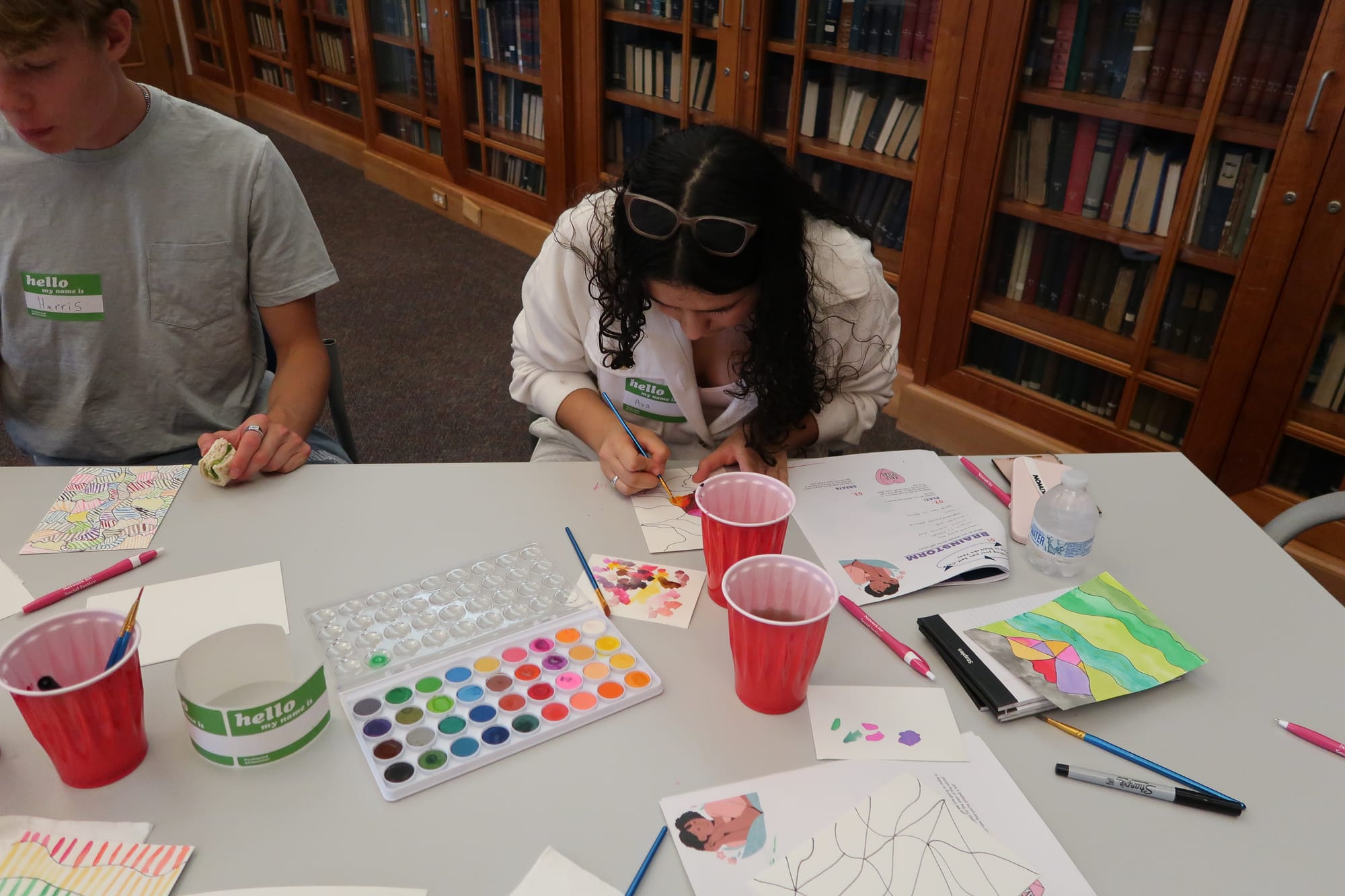
What started as a social way to connect with our community became an exciting research project. It involved reading, writing, measuring, evaluating evidence, and source checking for essential understanding; it’s fun, has many sides, and takes us to a place where we can look for the nuggets that reveal a story.
The school work followed us, or we followed it; either way, it is served with lunches of laughter on the side of a pond in the Griffin Museum, and it doesn’t feel like work. It feels like the ocean; understanding comes in crashing waves, and then the tide goes out, and you are unsure whether your actions are measured.
Thank you to Rebecca and the Network for Social Justice, Winchester Hospital Community Benefits and Winchester Cooperative Bank for making this summer bright, brilliant, and engaging.
Thanks for making it feel like a social outing. It’s helped me look at our future steps from a different lens.
Harris Roebuck and Ava Angele Khabbaz were Winchester Network for Social Justice interns in 2024.

